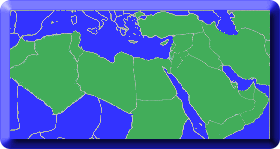
Topics in Middle Eastern and North African Economies
Document Type
Article
Publication Date
5-1-2020
Journal Title
Topics in Middle Eastern and North African Economies
Volume
22
Issue
1
Publisher
Middle East Economic Association and Loyola University Chicago
Abstract
Significant differences in social and economic resources exist between genders in the world as well as in Turkey. These differences have definite potential to affect life satisfaction, a specific aspect of subjective well-being. Measuring and analyzing the impact of gender differences in subjective well-being are very significant for societies in defining efficient and effective policies to reduce social inequalities and to dampen the gap in the quality of life between genders. Hence, the purpose of this study is to estimate the effect of gender difference on subjective well-being between men and women in Turkey, using panel ordered probit models, and provide policy suggestions to increase the quality of life and reduce the differences in subjective well-being between genders. Findings suggest that significant differences in subjective well-being exist in Turkey and marital status, college education, social rights, government transparency are significant variables affecting subjective well-being. Dissemination of college education, better social rights, increasing government transparency appears likely to increase the level of social well-being in Turkey.
ISSN
2334-282X
Recommended Citation
Şengül, Seda and Lopcu, Kenan, "Does Gender Affect Subjective Well-Being? The Case of Turkey". Topics in Middle Eastern and North African Economies, electronic journal, 22, 1, Middle East Economic Association and Loyola University Chicago, 2020, http://www.luc.edu/orgs/meea/
Creative Commons License

This work is licensed under a Creative Commons Attribution-Noncommercial-No Derivative Works 3.0 License.
Copyright Statement
© The Author(s), 2020



Comments
Presentation of the articles in the Topics in Middle Eastern and North African Economies was made possible by a limited license granted to Loyola University Chicago and Middle East Economics Association from the authors who have retained all copyrights in the articles.